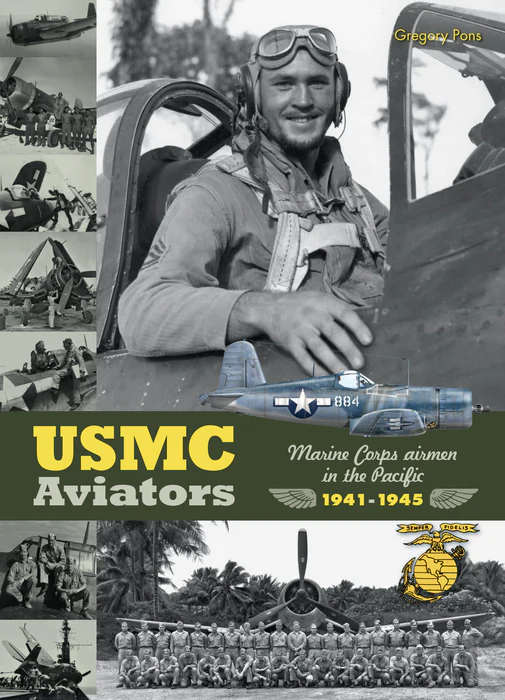
Pons, Gregory - USMC Aviators (ebook)
Marine Corps Airmen in the Pacific (1941-1945)
by Gregory Pons
When Japan attacked the United States on December 7, 1941, Americans realized they would be fighting on the largest battlefield in history, the Pacific
Ocean. The evolution of this conflict, which started with carrier strikes, made aviation
and aircraft carriers the dominant elements of the two major combatants.
Among those deployed by the Americans were elite aviators attached to the Marine Corps from ground-based or embarked units. Fighting in a hostile environment thousands of miles away from home, these men performed courageous exploits
daily. Using original source material from the photographic albums and archives
of some of them, here is their history.
Since its creation in 1775, the United States Marine Corps has been an exemplary expeditionary force for American defense. This elite, amphibious branch of the military is a com‑ ponent of the US Navy. At the end of World War I, the Marine Corps had America’s smallest aviation command, but a decade later Marine aviators demonstrated in combat their unique and important role in the American armed forces.
By the time of the Japanese attack on Pearl Harbor on December 7, 1941, Marine Corps aviation was still a minor force with only 641 pilots organized into 13 squadrons. By the war’s end four years later, the Marines had over 10,000 aviators flying in 128 squadrons.
All photographs and documents in this book are either from the author’s collection,
the personal photo albums of veterans, or US Government archives. Each is a testimony
of the daily life of Marine squadrons in the Pacific Theater of Operations in World War
II. Unfortunately, due to the exigencies of combat and to extreme climatic conditions, photographs of Marine Corps aviation units in combat zones are relatively rare when compared to the other branches of the US Armed Forces. Few men had the time or cameras to take photos and develop them in favorable conditions. These photos taken by the few who could record their experiences in celluloid are today, a rare and precious testimony of the daily lives of these men.
173 pages - in English - PDF to download























